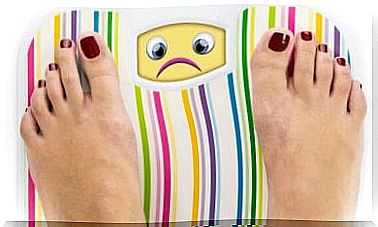How Does Caffeine Affect The Brain?

Almost all of us know at least one way caffeine affects the brain: it awakens and revives us. That’s why it’s so common for coffee to be the first drink in the morning because it helps us wake up to our daily routine. But does caffeine affect the brain in any other way?
The effect of caffeine on the brain is not limited to increasing activity, but its effects are much greater. Experts agree that drinking coffee in reasonable amounts is a healthy habit. It is estimated that up to 80% of the world’s adults drink coffee.
When we consume coffee in very large quantities, it causes various problems. One of the effects of caffeine on the brain is creating addiction. Because of this, we may experience withdrawal symptoms when we stop drinking it.
Let’s take a closer look.
How does Caffeine Affect the Brain?
As we know, the active ingredient in coffee is caffeine, and this is a psychoactive substance. In fact, it is the most widely used psychoactive substance in the world. It belongs to the alkaloid family, which also includes e.g. morphine, nicotine and cocaine.

The effect of caffeine on the brain is very strong. From a neurobiological point of view, it changes the state of consciousness by activating or increasing alertness. It also affects cognitive processes and has psychological effects on mood.
This is because caffeine is able to alter the function of neurotransmitters in the brain. In addition, coffee and caffeine also affect many other processes in the body, such as digestion, metabolism, and vision.
Caffeine, adenosine and adrenaline
All day our body produces a natural substance called adenosine. This substance is responsible for feeling tired and makes us feel tired in the evening. If you drink coffee, this process does not happen.
Caffeine is an adenosine antagonist. Simply put, it means that one is blocking the action of the other. The result is that we do not feel tired or feel less tired. At the same time, this interaction between caffeine and adenosine causes the pituitary gland to release hormones that stimulate the adrenal glands to produce adrenaline.

When there is caffeine in the brain, adenosine is blocked, and adrenaline production is increased, it is as if we have sent a warning message to the body. This means that your heart rate is accelerating. In addition, blood flow and respiration rate increase.
All of this together makes us feel more anxious and irritable. Another side effect of caffeine is that it blocks the absorption of dopamine, a neurotransmitter. It also affects exhaustion and rest. Dopamine, which is not absorbed, boosts its concentration and this explains why we become addicted to coffee.
Caffeine affects the anterior segments of the brain
Florian Koppelstaetter’s group from the Medical University of Innsbruck, Austria, presented a study on the subject. In this study, they find that caffeine activates the anterior segments of the brain. This area regulates processes such as alertness and short-term memory.
Other studies point out that another way caffeine can affect the brain is to help correct memories more easily. However, this effect is only relevant for those who do not enjoy coffee too often.
Caffeine also increases the ability to concentrate, especially when we are tired. However, the available data show that when consumed excessively, it degrades performance in all areas and causes nervousness.
Other effects of caffeine on the body
Caffeine also helps some medications work faster and more effectively. Good examples of this are ibuprofen, paracetamol and aspirin. In fact, there are health conditions in which coffee can be used as a mild painkiller. This works especially in the treatment of hypotensive headache.
Coffee also makes you feel less appetite, although this feeling is neither long-lasting nor relevant to weight loss. Some studies have found that people who drink coffee regularly are less likely to die from things like heart disease, cancer, and diabetes.
Caffeine stays in the body for a long time. Its first effects are felt 15 minutes after ingestion and continue for up to five or six hours later. Therefore, a cup of coffee in the afternoon can ruin your night’s sleep!









